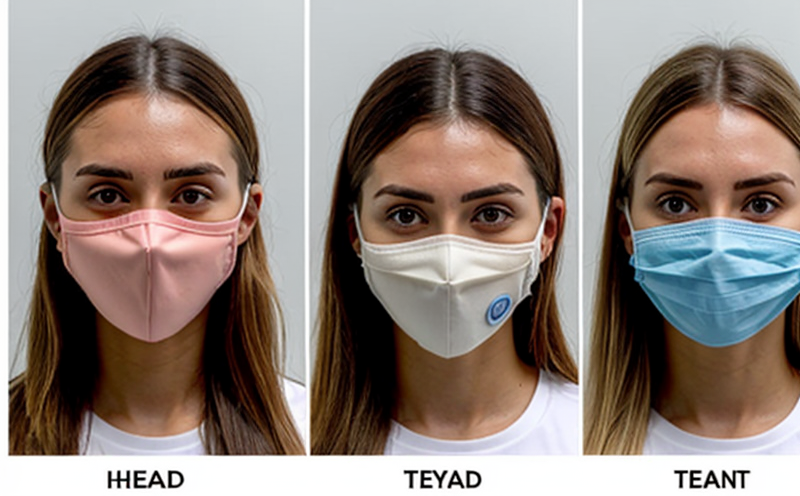ANSI Z90.4 Bicycle Helmet Testing
The ANSI Z90.4 standard pertains to bicycle helmets and establishes performance requirements designed to protect users in various crash scenarios. This testing service ensures that helmets meet stringent safety criteria, thereby safeguarding the well-being of cyclists. Compliance with this standard is crucial for manufacturers aiming to produce safe and reliable cycling gear.
The testing encompasses a series of impact tests aimed at evaluating helmet durability under different conditions. These tests are conducted on various types of impacts such as low velocity, high energy, and oblique impacts that simulate real-world crash scenarios. The primary objective is to ensure the helmet provides adequate protection against head injuries during such events.
The testing procedure involves placing the helmet on a standardized form fitted with an impactor. The helmet is subjected to predetermined forces and angles of impact, simulating different types of falls or collisions that cyclists might encounter. After each test, the integrity of the helmet is inspected for any cracks, deformations, or other signs of damage.
The ANSI Z90.4 standard also includes provisions for testing the retention system, which ensures that the helmet remains securely fastened during impact. This aspect is critical as an improperly secured helmet can shift or come off during a crash, thereby negating its protective function. The retention system's performance is evaluated by subjecting it to various pull and release tests.
Another key component of ANSI Z90.4 testing involves assessing the liner material within the helmet. This layer plays a vital role in absorbing impact forces, reducing head acceleration, and ensuring that the energy from an impact is distributed harmlessly around the skull. The liner's ability to withstand high-energy impacts without sustaining damage is rigorously evaluated.
In addition to these mechanical tests, ANSI Z90.4 also mandates testing for environmental conditions such as extreme temperatures, moisture, and UV radiation. These tests ensure that the helmet maintains its integrity and protective capabilities under a wide range of environmental stresses it may encounter during use or storage.
The results from each test are meticulously recorded and analyzed to determine compliance with ANSI Z90.4 standards. Non-compliance can lead to product recalls, legal issues, and reputational damage for the manufacturer. Therefore, rigorous adherence to these testing protocols is essential for ensuring the safety and reliability of bicycle helmets.
Compliance with ANSI Z90.4 is a testament to a company's commitment to safety and quality in its products. It assures consumers that the helmet has undergone extensive testing and meets stringent safety criteria. This certification can significantly enhance brand reputation, attracting more customers who prioritize safety features when purchasing cycling gear.
The process of achieving compliance with ANSI Z90.4 also benefits R&D engineers by providing valuable insights into how different materials, designs, and manufacturing processes impact helmet performance. This knowledge is invaluable for continuous improvement and innovation in helmet design and technology.
Benefits
Compliance with the ANSI Z90.4 standard brings numerous benefits to manufacturers of bicycle helmets:
- Increased Consumer Confidence: Meeting this standard enhances consumer trust, as it indicates that the helmet has been rigorously tested for safety.
- Legal Protection: Compliance shields manufacturers from potential legal disputes related to product liability and safety concerns.
- Market Advantage: Certified products are more likely to be favored by consumers looking for reliable safety equipment, giving a competitive edge in the market.
- Enhanced Reputation: Achieving this certification can significantly boost brand reputation, leading to increased sales and customer loyalty.
- Improved Product Quality: The rigorous testing process ensures that only high-quality products make it to the market, improving overall product satisfaction.
In summary, compliance with ANSI Z90.4 not only ensures safety but also supports a company’s strategic goals by enhancing its reputation and market position.
Quality and Reliability Assurance
The process of achieving compliance with the ANSI Z90.4 standard involves a comprehensive approach to quality assurance, ensuring that each helmet meets the highest safety standards before it reaches consumers:
- Pre-Testing Inspection: Helmets undergo thorough inspection prior to testing to ensure they are free from defects or manufacturing flaws.
- Standardized Testing Procedures: Each helmet is subjected to a series of standardized tests, including impact resistance and retention system performance. These procedures are meticulously followed to ensure consistency and reliability in test results.
- Data Analysis: Detailed data from each test is analyzed using advanced analytical tools to identify any discrepancies or areas for improvement.
- Prediction Modeling: Using predictive modeling techniques, manufacturers can anticipate how changes in design or materials might affect helmet performance. This allows for proactive improvements and innovations.
- Continuous Improvement: Based on test results and data analysis, ongoing improvements are made to ensure that helmets continue to meet and exceed safety standards.
This rigorous quality assurance process ensures that each helmet not only meets but surpasses the stringent requirements set by ANSI Z90.4, providing peace of mind for cyclists and their families.
Environmental and Sustainability Contributions
The testing and certification process under ANSI Z90.4 contribute positively to environmental sustainability in several ways:
- Eco-Friendly Materials: Manufacturers are incentivized to use eco-friendly materials that meet the stringent performance requirements without compromising on safety.
- Reduced Waste: By ensuring only high-quality, durable helmets reach consumers, waste is minimized. This reduces the environmental impact associated with discarded products.
- Energy Efficiency: The testing process helps identify more energy-efficient manufacturing processes that can reduce the overall carbon footprint of production.
- Education and Awareness: Compliance with ANSI Z90.4 raises awareness about helmet safety, encouraging consumers to make informed purchasing decisions that prioritize environmental responsibility.
In conclusion, the ANSI Z90.4 certification process not only ensures product quality but also promotes sustainable practices within the industry, contributing to a greener and safer world for all cyclists.





